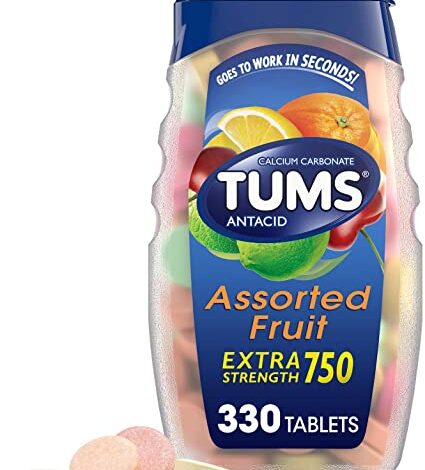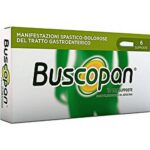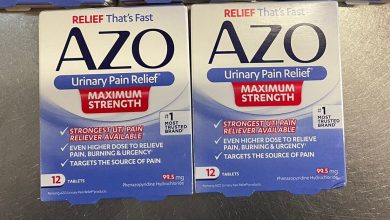Are TUMS Safe During Pregnancy?

Indigestion, also called heartburn or acid reflux, is common in pregnancy. It can be caused by hormonal changes and the growing baby pressing against your stomach. During pregnancy, hormone changes can allow the muscles in the esophagus, including the LES, to relax more frequently. The result is that more acids may seep back up, particularly when you’re lying down or after you’ve eaten a large meal.
In addition, as your fetus grows during the second and third trimesters and your uterus expands to accommodate that growth, your stomach is under more pressure. This can also result in food and acid being pushed back up into your esophagus.
What are TUMS and how do they work?
TUMS is an antacid used to relieve heartburn, sour stomach, acid indigestion, and upset stomach associated with these symptoms. Many other heartburn medications are absorbed into the bloodstream and can take hours or day to fully work. TUMS, with active ingredient Calcium Carbonate, travels directly to the source of the heartburn.
TUMS has been providing heartburn relief for more than 90 years. Created in 1928 by pharmacist James Howe to treat his wife’s indigestion, the TUMS brand was introduced to the public in 1930 and quickly became an American favorite among antacid treatments.
TUMS starts to neutralize the heartburn-causing acid in your stomach on contact which provides fast relief for your tough heartburn. These calcium carbonate tablets go to work instantly by starting to neutralize acid on contact, with 50% more acid fighting power per tablet than regular TUMS tablets.
Can you take TUMS while pregnant?
Yes, doctors recommend antacids such as Tums, to help pregnant women cope with occasional heartburn symptoms. Those made of calcium carbonate or magnesium are good options. However, it may be best to avoid magnesium during the last trimester of pregnancy. Magnesium could interfere with contractions during labor.
Most doctors recommend avoiding antacids that contain high levels of sodium. These antacids can lead to a buildup of fluid in the tissues.
How should I take TUMS during pregnancy?
The maximum daily dosage for Extra Strength is 6 tablets in 24 hours and for Ultra Strength is 5 tablets in 24 hours. Ask your doctor if TUMS and other options are appropriate for you.
What other things can I do to improve my symptoms?
You can make changes to your lifestyle to help relieve your symptoms of heartburn or acid reflux. Here are some things to try:
- Change your eating habits.
- It’s best to eat several small meals instead of two or three large meals.
- After you eat, wait 2 to 3 hours before you lie down. Late-night snacks aren’t a good idea.
- Chocolate and mint can make heartburn or acid reflux worse. They relax the valve between the esophagus and the stomach.
- Spicy foods, foods that have a lot of acid (like tomatoes and oranges), and coffee can make GERD symptoms worse in some people. If your symptoms are worse after you eat a certain food, you may want to stop eating that food to see if your symptoms get better.
- Do not smoke or chew tobacco.
- If you have heartburn or acid reflux symptoms at night, raise the head of your bed 6 in. (15 cm) to 8 in. (20 cm) by putting the frame on blocks or placing a foam wedge under the head of your mattress. (Adding extra pillows does not work.)
- When trying other over-the-counter antacids for heartburn symptoms.
- Be careful when you take over-the-counter antacid medicines. Many of these medicines have aspirin in them. While you are pregnant, do not take aspirin or medicines that contain aspirin unless your doctor says it is okay.
- During pregnancy, do not use antacids that have sodium bicarbonate (such as baking soda), because they can cause fluid buildup. Do not use antacids that have magnesium trisilicate, because they may not be safe for your baby. It is okay to use antacids that have calcium carbonate (such as Tums).
You may also find useful information on: Is Melatonin Safe During Pregnancy?





